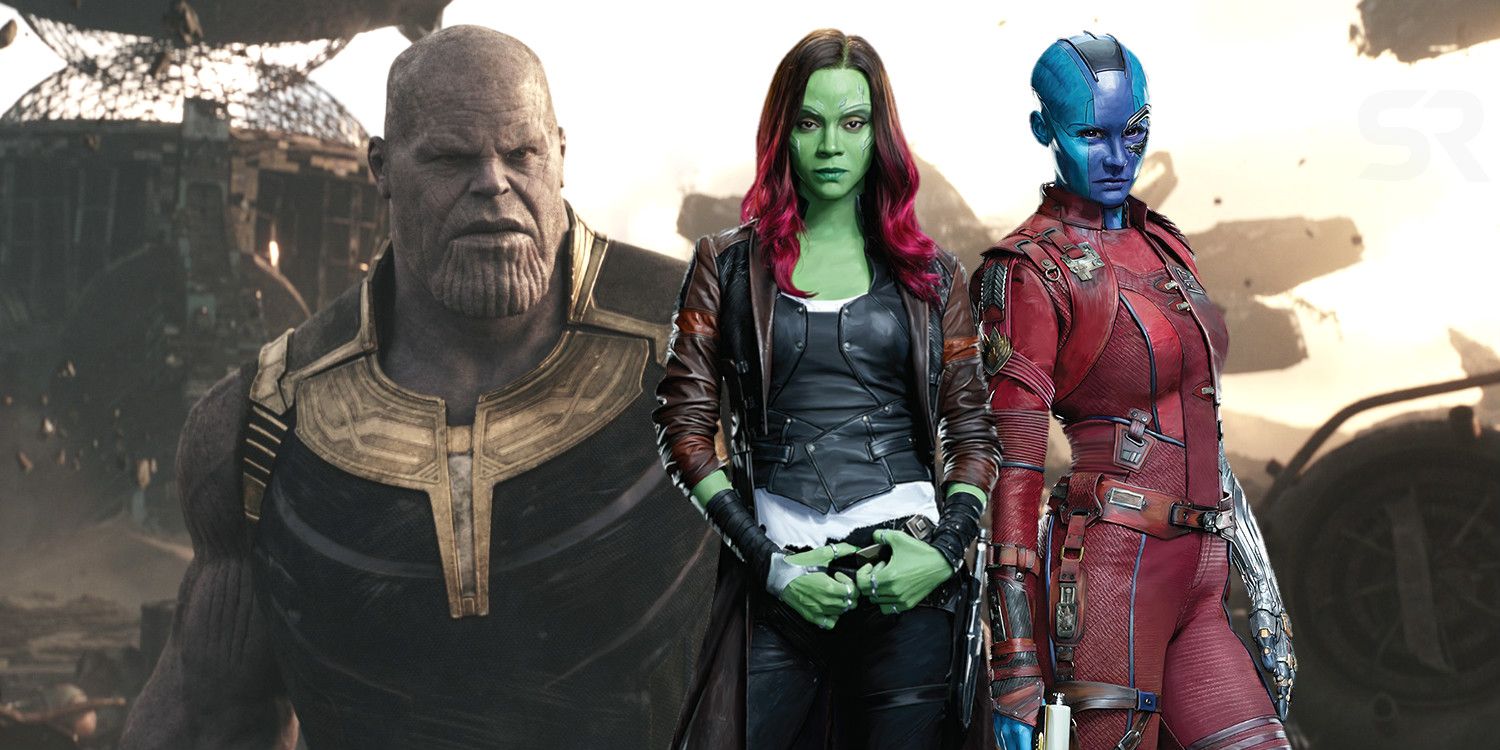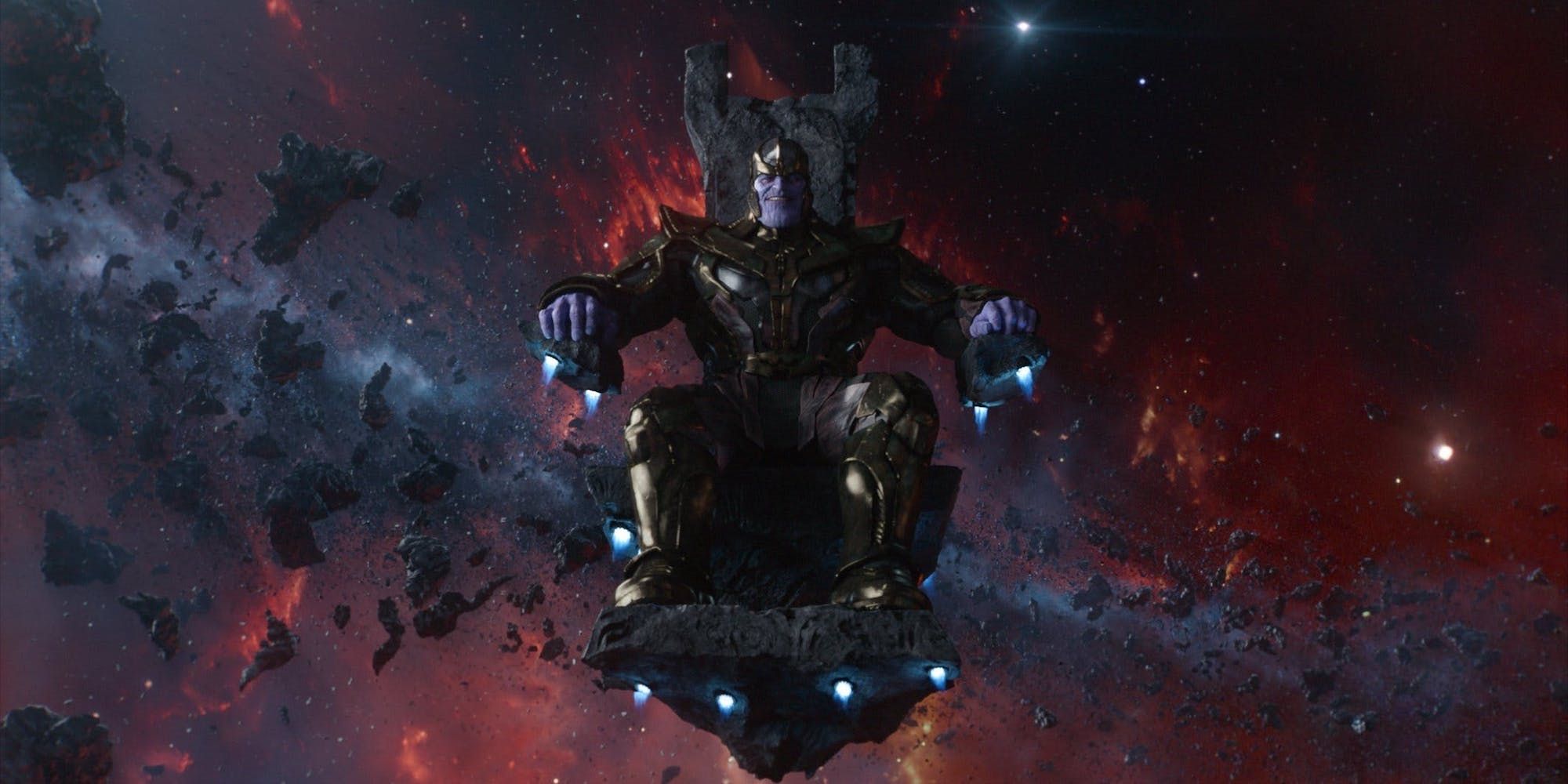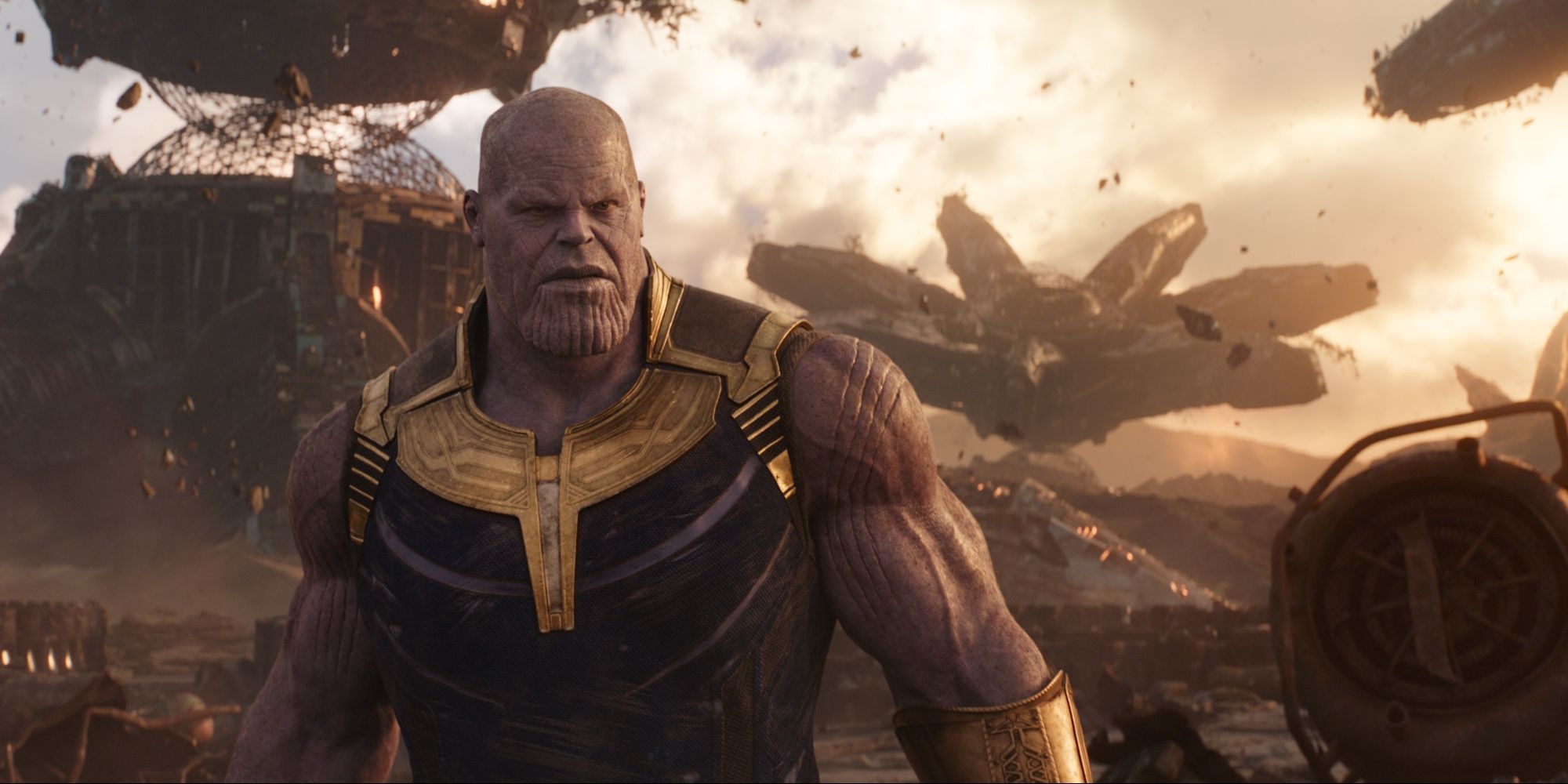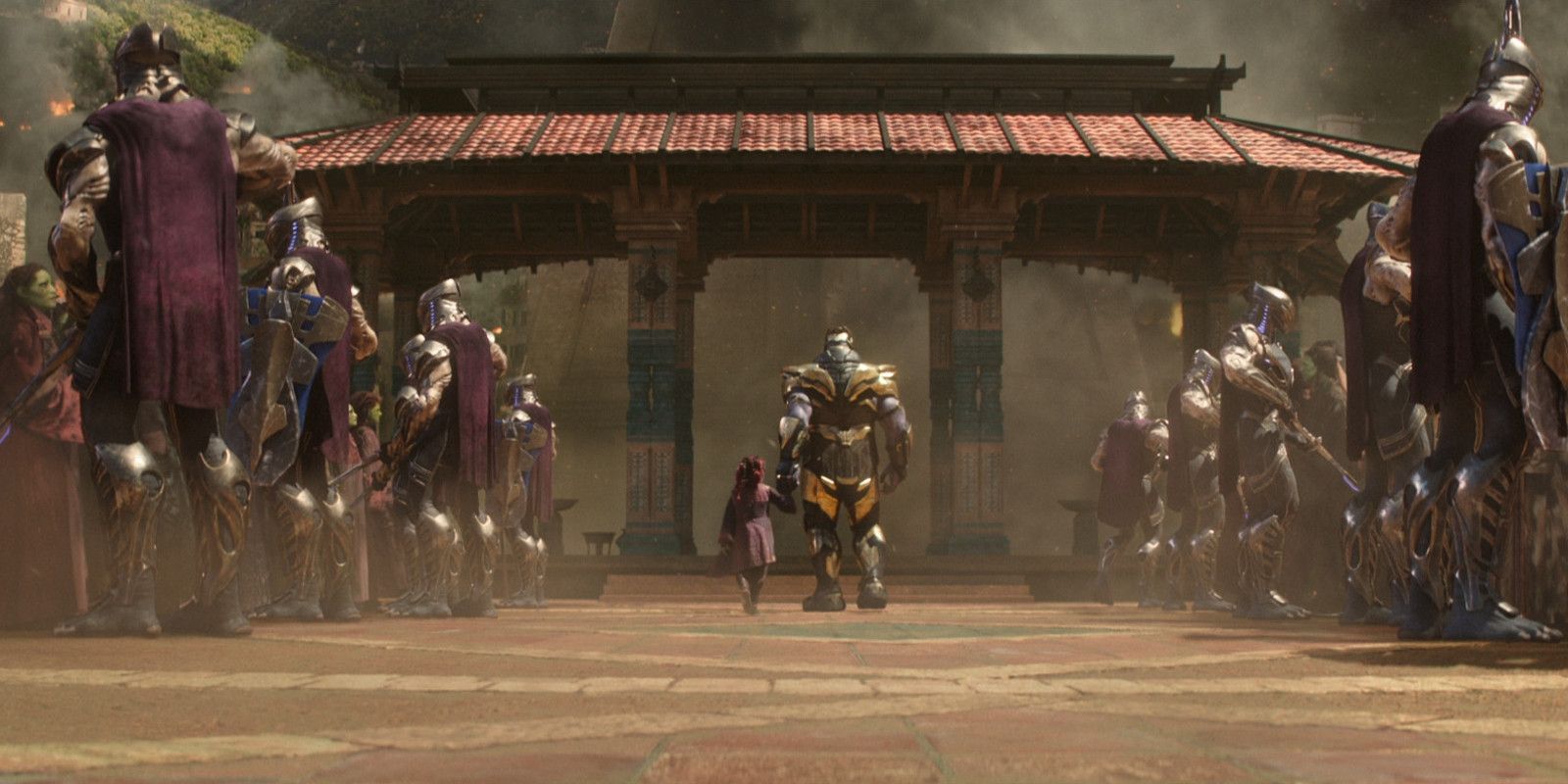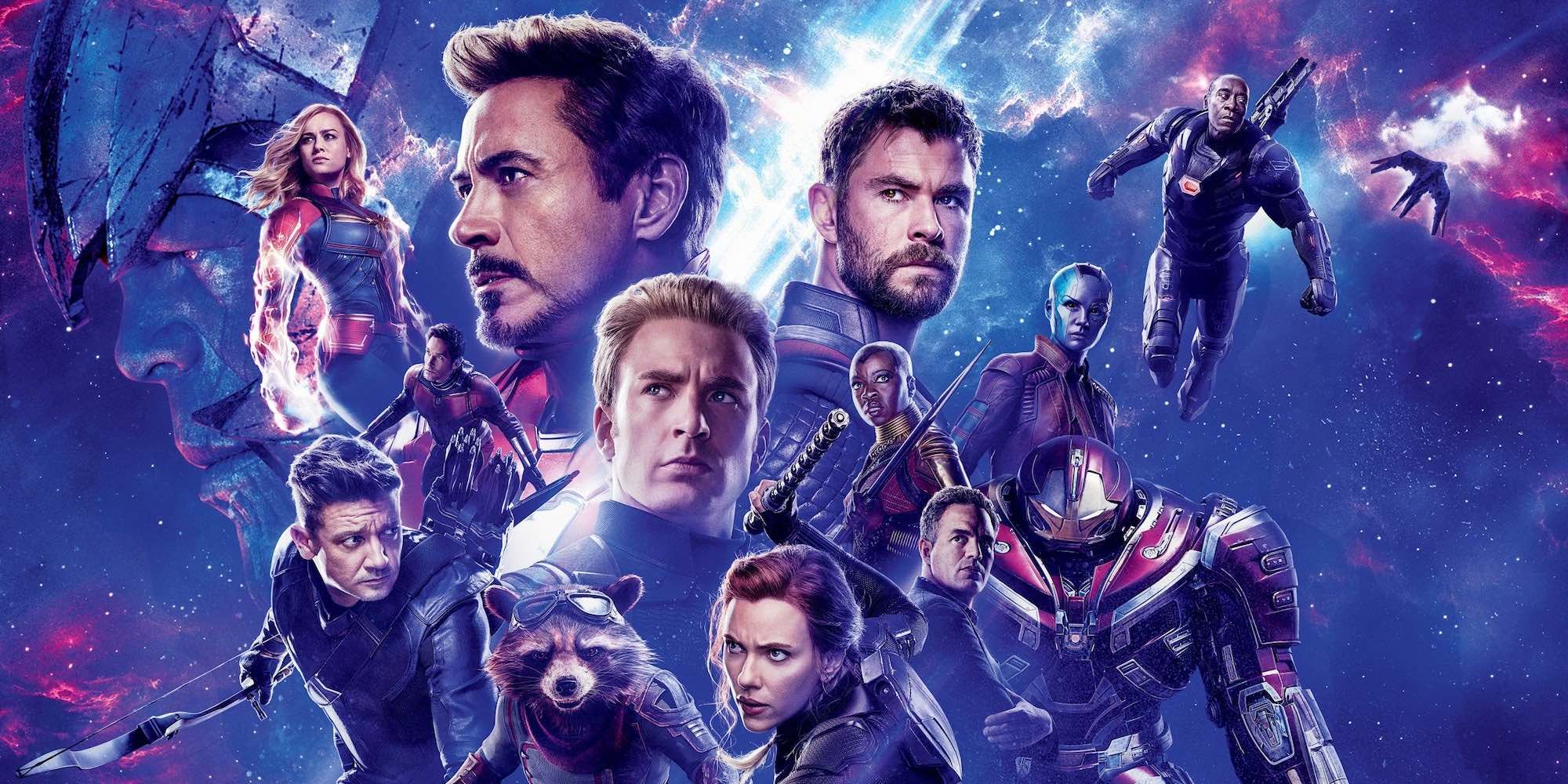The Marvel Cinematic Universe's biggest mistake in 11 years and 21 movies is humanizing Thanos as the villain in Avengers: Infinity War. The MCU kicked off more than a decade ago with Iron Man in 2008, and Marvel Studios is gearing up to release Avengers: Endgame, which is said to conclude the story the entire franchise has been telling so far. Marvel Studios head Kevin Feige termed the first three phases of the MCU the Infinity Saga since they built to the events of Infinity War and their aftermath.
Avengers: Infinity War was the beginning of the end, finally introducing a villain who'd only been teased in the MCU previously: Thanos. In the cliffhanger ending of Avengers: Infinity War, Thanos used all six Infinity Stones assembled in his Infinity Gauntlet to snap away half of life in the universe. As a way of building to that momentous event in the MCU, Infinity War focused on Thanos just as much as the franchise's heroes, developing the Mad Titan enough so he wasn't a one-note villain.
However, though Avengers: Infinity War works to humanize Thanos and evolve him from a soulless threat into a three-dimensional villain, there were unintended consequences of how that depiction of the Mad Titan works amid the larger MCU. Prior to Infinity War, Thanos is largely developed through other characters' relationships to him. Infinity War, in a manner of speaking, attempts to redeem Thanos enough to make him compelling, especially in the sequence where he acquires the Soul Stone, but it winds up putting the MCU in a terrible position that it seems unlikely they'll be able to get out of in Avengers: Endgame. So, humanizing Thanos was the MCU's biggest mistake.
- This Page: The MCU Failed to Develop Thanos Before Infinity War
- Page 2: Thanos Is (Almost) Irredeemable; Gamora & The Soul Stone Humanize Him
- Page 3: Why Humanizing Thanos Was The MCU’s Biggest Mistake
The MCU Failed to Develop Thanos Before Infinity War
Before making his official debut in the first scene of Avengers: Infinity War, Thanos was largely relegated to post-credits scenes of various MCU movies, starting with The Avengers in 2012. The one exception is, of course, Ronan meeting with Thanos in Guardians of the Galaxy. But even then, there's not much to be gleaned about Thanos' character from that scene, just like there's very little characterization in the post-credits scenes aside from establishing Thanos as a menacing villain.
The majority of Thanos' characterization in the MCU prior to Infinity War is delivered second-hand by various characters, particularly in Guardians of the Galaxy and Guardians of the Galaxy Vol. 2. In the first Guardians, viewers learn that both Thanos' adoptive daughters, Gamora and Nebula, hate him and betray him. They go to great lengths to make sure Ronan - and, by extension, Thanos - never gets his hands on the Power Stone. Gamora tries to sell the stone to the Collector, then gives it to Xandar to protect, while Nebula switches allegiances to Ronan when she learns he'll kill Thanos with the stone after decimating Xandar. It's also in Guardians that we learn Thanos is responsible for the deaths of Drax's wife and daughter, using Ronan to terrorize Drax's home world and, it's implied, a number of other worlds.
Then, Guardians of the Galaxy Vol. 2 dives deeper into the trauma Gamora and Nebula underwent as children of Thanos. The movie reveals Thanos would force the sisters to fight as young girls and when Nebula would lose, Thanos would replace a piece of her with a cybernetic enhancement, essentially torturing the young girl. In the film, Nebula reveals she resented Gamora for winning so much and for not being a proper sister, but the two come to recognize the abuse each other faced from Thanos and are able to begin moving forward with a less combative sisterly relationship.
It's through Gamora and Nebula's trauma, as well as Drax's grief over his family, that reveals most of what MCU viewers know about Thanos prior to Infinity War. He's someone who murders women and children, who uses someone like Ronan the Accuser to do his dirty work, who pitted two young girls against each other in combat and tortured whoever lost. Although Drax finds a little bit of peace in killing Ronan in Guardians of the Galaxy and Gamora and Nebula are able to forge a new bond over their shared childhood trauma, it still paints a very clear picture of Thanos. And that picture is of an unrepentant monster. But Avengers: Infinity War tries to walk that characterization back.
Next Page: Thanos Is (Almost) Irredeemable; Gamora & The Soul Stone Humanize Him
Thanos Is Irredeemable In Avengers: Infinity War (Almost)
Avengers: Infinity War dives into Thanos' backstory for the first time, offering viewers an explanation for why the Mad Titan does what he does. The movie also reveals how Gamora became his adoptive daughter, depicting Thanos and his army on her home world, slaughtering half the population, including her mother and the rest of her family. Thanos takes Gamora for himself, giving her a special switchblade and raising her to be an assassin - a tool for him to use. And based on Guardians of the Galaxy, where it's described that Thanos "lent" Gamora and Nebula to Ronan, Thanos seems to treat his daughters as tools, objects to be lent out, more than people in their own right.
The scene of how Thanos found Gamora also displays his cold, ruthless tactic of wiping out half a planet's population in his quest to balance the universe. Infinity War, of course, reveals the reason for his mission: When Thanos still lived on Titan, the planet was threatened by catastrophic overpopulation. He suggested killing half the population at random in order to save the planet and their race, but his idea was rejected and Titan fell to their overpopulation, with the planet becoming uninhabitable and the race nearly extinct. In Thanos' mind, his mission is a righteous one, saving other planets and races from themselves by killing half their population. He views the job as thankless, but necessary.
Avengers: Infinity War explaining Thanos' motivations is essential to developing the Mad Titan as a three-dimensional villain. Similar to Black Panther's Erik Killmonger, in his mind Thanos has a righteous mission - protecting the universe from the same fate that befell Titan - but his methods are irredeemably evil. Infinity War never frames Thanos' actions as anything but evil. But when the movie attempts to humanize the villain through his relationship with Gamora, Infinity War takes it too far.
Gamora & The Soul Stone Humanize Thanos
In addition to revealing Thanos' motivations for his decimation of various planets and races, Avengers: Infinity War develops the relationship between Thanos and Gamora. This development is used both as a way of humanizing Thanos, and as a story point later on in the movie. Infinity War attempts to establish that Thanos truly cares for Gamora, that he saw strength in her from the time she was a child and grew to love her as his own daughter as he raised her to one day inherit his throne. Despite her betrayal in Guardians of the Galaxy, in Infinity War he believes Gamora can still be loyal to him and help him in his mission.
Avengers: Infinity War lays it on thick, attempting to depict a softer side of Thanos through his relationship with Gamora, but that love and devotion also becomes the reason he must sacrifice her on Vormir in order to obtain the Soul Stone. Looking at it from a story point, if the Soul Stone requires someone wishing to obtain it to sacrifice the person they love most, then Infinity War must establish a character Thanos loves enough that killing them would be a sacrifice - and Gamora is chosen to be that character. Certainly, there are seeds of her being his favorite daughter as far back as Guardians of the Galaxy, but until Infinity War, there's no real hint that he loves her as more than his favorite tool. And Infinity War itself must rush the characterization of their relationship so much that it doesn't actually make sense.
Throughout the entirety of the MCU, Thanos is portrayed as a psychopath. He's unrepentant about the atrocities he's committed, he doesn't feel guilty for or empathetic to the millions - potentially billions - he's killed. And even his relationships with his daughters lack love, as evidenced by the way he tortured them as children and adults. He treated them with little to no empathy and then once they became the assassins he trained them to be, lent them out like tools rather than treating them like people in their own right. These are all traits typical of a psychopath. The lack of emotional attachments is another trait, one that Thanos displays up until the writers and creatives behind Avengers: Infinity War need him to have an emotional attachment in order to move the story forward.
Although Infinity War attempts to establish that Thanos actually does have an emotional attachment to Gamora, it doesn't make sense for his character. He isn't capable of love, until he needs to be capable of love to move the story forward and obtain the Soul Stone. But his type of love still isn't what many would call love and, in fact, the implications of this particular character and story beat have an underlying message that potentially ruins the MCU for certain viewers.
Next Page: Why Humanizing Thanos Was The MCU’s Biggest Mistake
Why Did Infinity War Humanize Thanos In This Way?
Thanos' character being rewritten in order to move the story forward would typically just be bad writing, but this particular choice has vile implications in the larger MCU and, ultimately, on Avengers: Infinity War audiences. As much as Marvel Studios, directors Anthony and Joe Russo and screenwriters Christopher Markus and Stephen McFeely may have felt justified in their choices with regard to making Thanos' story in Avengers: Infinity War work within the confines of the MCU, all these fictitious characters and this fictitious world are viewed by very real people. And one of the reasons the MCU is such a success is that these characters and this world strike a chord with viewers. The movies are crafted to get emotional responses out of audiences, but in the case of Thanos' relationship with Gamora, Avengers: Infinity War sends the completely wrong message.
Based on the fact that Thanos is able to obtain the Soul Stone by sacrificing Gamora, Infinity War seems to imply that everything Thanos did to Gamora was OK because he loved her. This is implied through Gamora's realization that Thanos really loves her. That realization is played like a plot twist more than an abuse survivor trying to reconcile that the abuse they suffered was out of love. Or, even if that's not how audiences interpret the film, the Soul Stone scene centers Thanos' love for Gamora over the trauma she suffered at his hands, positioning it as more important. For viewers with abusive parents, the scene either implies that what their abusive parents did was OK if it was out of love, or that their trauma isn't as important as their parents' love.
So either the film's writers and directors didn't consider the larger implications of what that scene would mean to real people who'd been abused by their parents, or they did and simply didn't care. To Marvel, the Russos', Markus and McFeely's credit, it was likely the former, and they surely didn't have any malicious intent. But that doesn't make the harmful message of Avengers: Infinity War to viewers with abusive parents any less real. Further, Avengers: Infinity War takes the incredibly problematic stance that an abusive, seemingly psychopathic person can love, and their love is pure enough that sacrificing a person they abused will be a great loss to them.
Why Humanizing Thanos Was The MCU’s Biggest Mistake
In an attempt to develop Thanos as a villain, something Marvel has been trying to do over the last few years to course correct after the villains of Phases 1 and 2 were criticized for being underdeveloped, Avengers: Infinity War actually includes a very harmful message about what constitutes as love. Certainly, fans of the MCU appreciate that Marvel Studios filmmakers have worked hard to humanize the villains of their movies because it ultimately elevates the films overall. But Marvel filmmakers must be conscientious of the messages they're sending with their movies and, for the most part, they are. Even when the villains are complicated, like Black Panther's Killmonger, the characters and their actions are still framed as evil.
But in the creatives' attempt to humanize Thanos through his love for Gamora, Avengers: Infinity War has a, presumably unintended, message about what love is - that an abusive father can love the daughter he traumatized - and centers that "love" as more important than the trauma he inflicted. It goes against everything the MCU has established with their films thus far. The MCU champions heroes, people who see wrong in the world and strive to right it, who battle obstacles from within and without, who may make mistakes but will ultimately work to atone for them.
Infinity War subverts the MCU formula by centering the villain and seeing him win, which for the most part works well. But through humanizing Thanos in Avengers: Infinity War, Marvel inadvertently champions that villain and delivers a message that's an affront to what the MCU is meant to stand for. Avengers: Infinity War unapologetically hurts the real people its fictional heroes are meant to protect, and that's why humanizing Thanos' is the MCU's biggest mistake.

